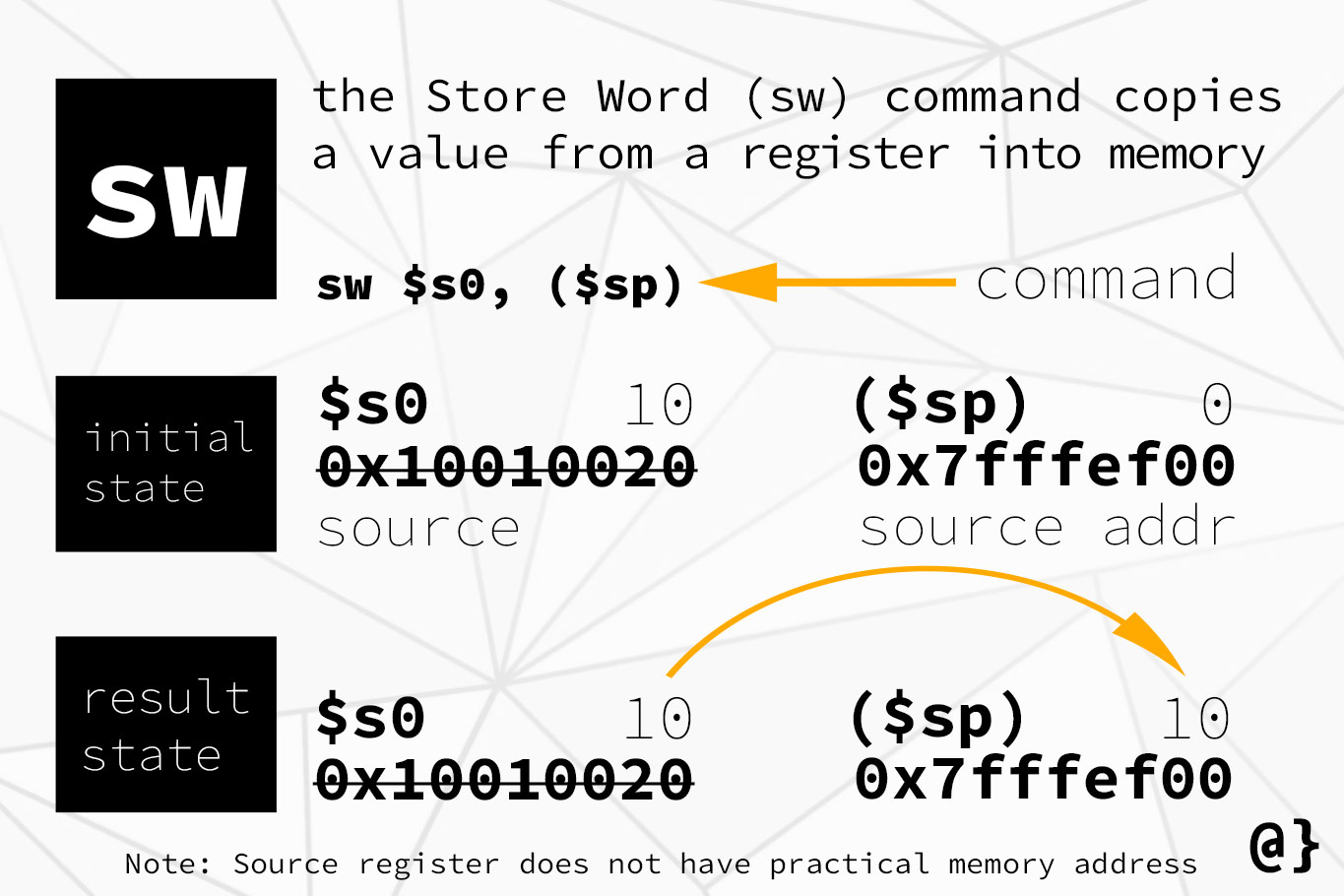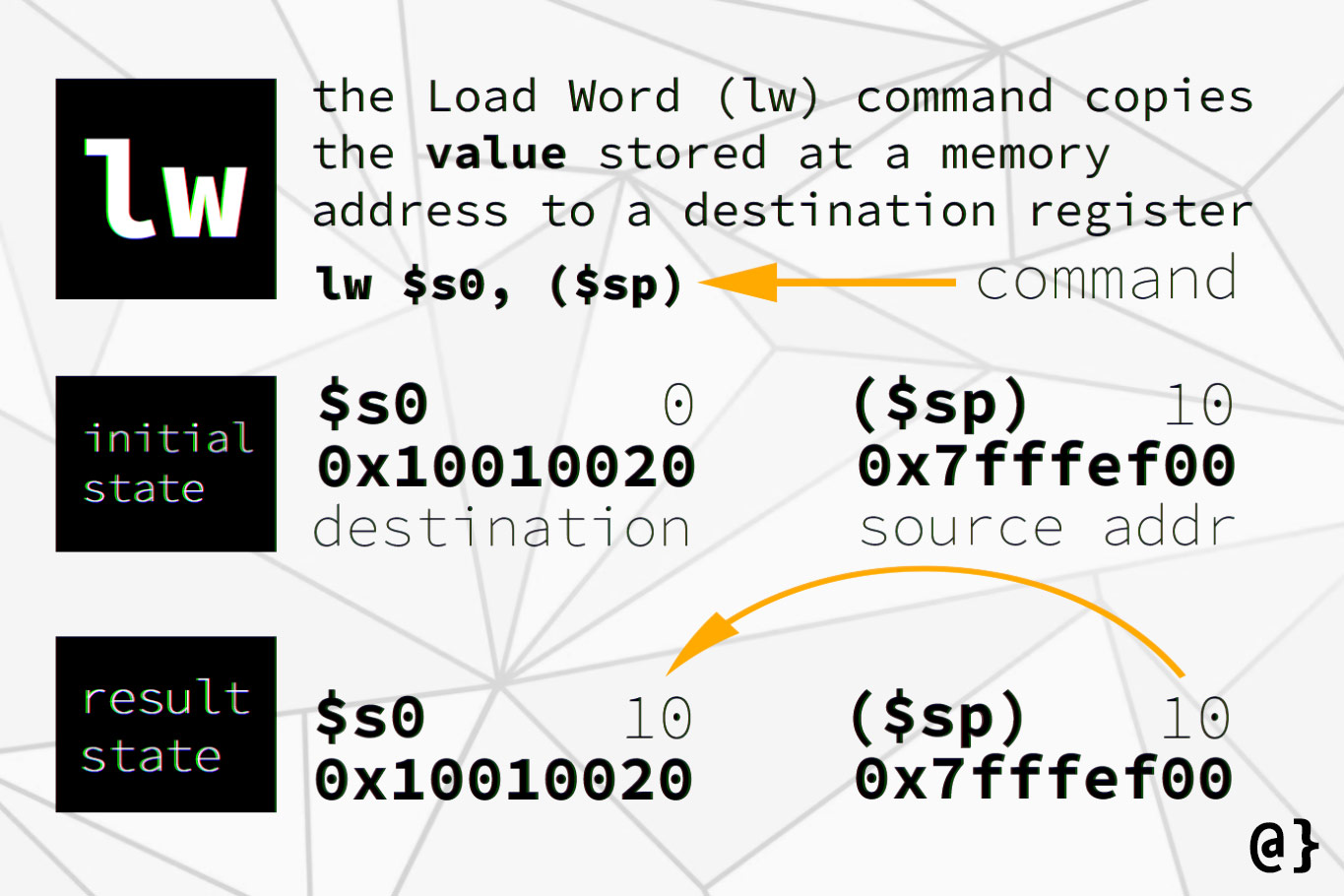How To Save A Register In Memory Mips
Assembly can be a tough language to wrap one'due south head around. Information technology's nitty, it's gritty, and can be tricky to debug. The Microprocessor without Interlocked Pipelined Stages (MIPS) architecture is a simplified linguistic communication that many universities use equally an introduction to assembly.
- 1 Shop Word (SW)
- 2 Load Give-and-take (LW)
- 3 Summary
While MIPS is considered a Reduced Education Set Computer (RISC) information technology can nevertheless be hard to get familiarized with. Two of the basic operations available to programmers are the Store Word (SW) and Load Word (LW) commands. These commands are used to call up (load) and save (store) values from specified retention locations.
Store Give-and-take (SW)

The MIPS SW control has the following instruction signature: sw, $source, offset($destination) where:
-
swis the control; -
$destinationis the register in which to save the value; -
outsetis the memory offset; -
$sourceis the base address.
This command instructs the CPU to have whatever value is stored at retentiveness location $source and copy it to the retentiveness location at $destination.
TL;DR – sw gets a value from a register and puts into memory
Load Discussion (LW)

The MIPS LW command has the following signature: lw, $destination, offset($source) where
-
lwis the command; -
$destinationis the register to which the value is to be stored; -
beginningis the memory offset; -
$sourceis the base address from which data is retrieved.
This command instructs the CPU to have whatever value is held in the $source register and save it into memory at the $destination address.
TL;DR – lw gets a value from memory and puts into a annals
Summary
MIPS is a keen language to learn the basics of assembly programming. The MIPS32 architecture helps expose a RISC fix of instructions in a reduced memory setting which helps simplify things farther. Basically, i wrangles 32-bit memory addresses during debugging rather than 64-bit addresses.
The sw and lw commands in MIPS are essential to loading and saving values from registers and memory locations. Understanding the fundamental actions of these commands tin assistance pave the fashion to basic operations such every bit loading values into arrays, copying arrays, and preparing registers for process calls.
How To Save A Register In Memory Mips,
Source: https://www.alpharithms.com/mips-store-word-sw-vs-load-word-lw-475521/
Posted by: stewartupoessiond.blogspot.com


0 Response to "How To Save A Register In Memory Mips"
Post a Comment